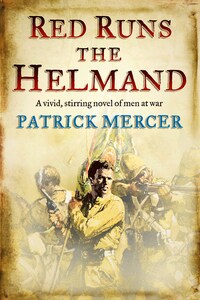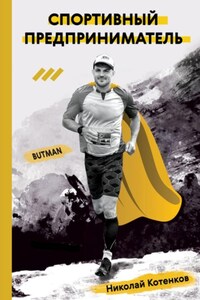The chaffing and laughter stopped abruptly: shallow jokes were choked off as the troops listened intently. Every bristle-chinned man in the long, snaking ranks sweated gently into his scarlet coat, shoulders bowed under his load of kit and ammunition, hands cupped around his rifle as he strained to hear the order that would start the killing. The warm, late September breeze carried the snapping and popping of the burning village of Bourliouk to their front clearly now as every voice was stilled, then the captains stumbled over the furrows of the vineyards clutching at swords and haversacks, rushing to be first to give the order to their men. The soldierly form of Captain Eddington, their company commander, stood before them, trim, athletic, just a slight flush on his face betraying the excitement of imminent action. The run had left him almost out of breath: he fought hard to steady his voice.
‘With ball cartridge … load!’
Eddington was crisp, exact, almost elegant compared with the brass-lunged non-commissioned officers who repeated his orders. Young Anthony Morgan did his best to conquer his suddenly dry throat, to stop himself sounding too Irish and utter the same command that, if truth were known, he had never really expected to say on the field of battle. Here he was, twenty-three and the junior subaltern of the 95th Foot's Grenadier Company, about to see war for the first time and acting as if he'd never heard the words of the drill manual before.
Almost as one, the troops spat out the cartridge paper, then the line sang as ramrods forced home the bullets that were about as big as the end of your thumb. Rifles were pulled sharply back to the order before a gulp swept down the lines – there could be no turning back now. With all forty rounds untied and ready for use in their pouches and hands sticky with sweat on the stocks of their weapons, every man knew that the browny-grey blocks of Russian infantry looking down at them on the other bank of the sluggish Alma had to be faced.
‘Officers, to me,’ Eddington shouted. Both of his subalterns, Richard Carmichael and Anthony Morgan ran from their places by their men to the front of the company.
‘Right, you two, the plan's simple …’ Eddington turned and pointed across the river towards the Great Redoubt, the earthwork at the centre of the Russian position, howitzer barrels just visible, pointing menacingly towards the waiting, British ranks. ‘The French will turn the right of the Russian position whilst we go straight at them here, across the river Alma, to take that Redoubt. The Light Division are on our left, Adams's Brigade on our right; Cambridge's Guards are to the rear, in reserve. Once the firing starts it'll be all smoke and chaos, I guess, so if you get confused, just look to the centre of the Regiment where the Colours are. Any questions?’ Despite the invitation, Eddington – quite evidently – felt that everything was as clear as it needed to be.
Neither subalterns dared ask anything, merely shaking their heads in reply.
‘Right…’ Eddington shook both of his officers' hands quickly. ‘Back to your men, remember how much they'll depend on you.’ Then, less stiffly, ‘Good luck,’ before both young men strode back to their places at either end of the Grenadier Company.
The river twisted and coiled between low banks on the northern side and higher ones to the south, then a little shelf gave way to a short, steep climb before the land sloped gently, smoothly up to the enemy positions. The Russian commander – Menschikoff – had given his divisional and regimental officers, in this part of the field at least, all the freedom they needed to plan this position and Morgan could see that they had been thorough. When they had paused at Scutari on their way to the Crimea, they'd visited their own artillery and been told that the most lethal range for guns against infantry was about six hundred paces. He looked up to the brass muzzles that peeped down through the embrasures over clear slopes where no vines grew and the only trees were a dotted line of scrawny poplars along the course of the river: they were about six hundred paces away.
Morgan was just able to make out the far-off rattle of drums before the first shot rasped overhead – he'd never heard that sound before: now his guts and arse tightened – just as the veterans had said. Judging by the way that the whole company ducked, there were another eighty-odd spincters doing just the same and he fought with himself to look the men in the face and not to turn and stare at the guns whose smoke now roiled across the hillside. The round shot had still to find their mark when the commanding officer cantered forward, his own nervousness carrying to his horse – the animal pecked and sidestepped as the balls shivered through the air.










